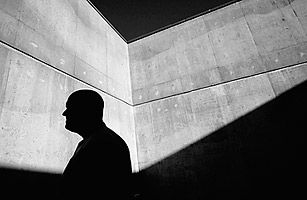
(2 of 2)
Frankie adamantly denies that homophobia was the reason he singled me out, despite his generous use of gay slurs at the time. "Have you considered there could have been lots of other reasons?" he told me. But he himself cannot pinpoint them. Perhaps I can. I am convinced that, in part, he identified with my pain. He was the victim of abuses as a child, of truly ugly stuff that makes my troubles look frivolous in comparison. He also — unsurprisingly — had his own insecurities. His actions toward me were perhaps the only way he could engage someone he sensed had troubles of his own. He knew I was gay even before I knew I was. And in the bumbling, cruel and confused language of adolescence, he was letting me know it.
There is no excusing the way he let it out, as taunts and threats — looking me in the eye and saying he was going to kill me, convincing me it wasn't merely a figure of speech, making me terrified to go to school each day. As a teen, I remember sometimes feeling so much pain that I would say to myself, I ought to be suicidal. Fortunately, that wasn't in my makeup. I think I'm too ornery. Perhaps I had more support than I admit to.
I was not all innocence myself. Nearly all of us have engaged in bullying to some extent, if in less obvious forms than pinning another kid against a gym wall. I'm not proud of it, but I have been a bully. As part of a group of nerdy kids in school, I taunted newcomers and outsiders, anyone with a weakness that I could pick to disguise my own. I certainly should have known better. I now know how to recognize the cowardice in bullying and to see valor in aligning myself with the bullied. What must be stigmatized is avoiding confrontation and scattering to safety instead of coming to the aid of the weak.
Now I know better, thanks in large part to this late-in-life gift, what has become a friendship with Frankie. He has helped me explore, depersonalize and put to rest my childhood trauma of being bullied. In the process, he has somehow transferred to me some of the extraordinary mental strength that has enabled him to survive behind bars.
No one helped Frankie when he needed it. And so he went on to cause mayhem in his family and, on one alcohol-sodden night, to murder a man. My mission is now to help the person who bullied me, who caused me years of grief. It's not lost on me that the balance of power between Frankie and me has shifted. Frankie has no possibility of parole. Because of the damage others did to him, he made a terrible mistake and is in prison till the day he dies. I'm powerless to change that. But I can be his friend and return the unexpected and precious favor he's granted me.
Guenther is head of executive communications at a large financial-services firm based in New York. He is writing a book on his experience with Frankie.